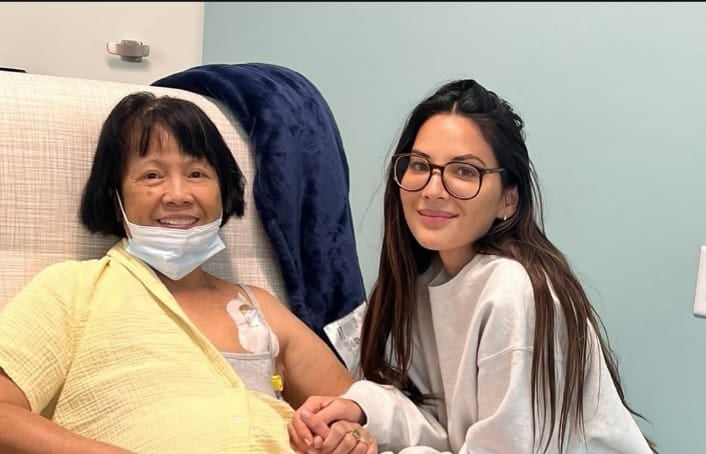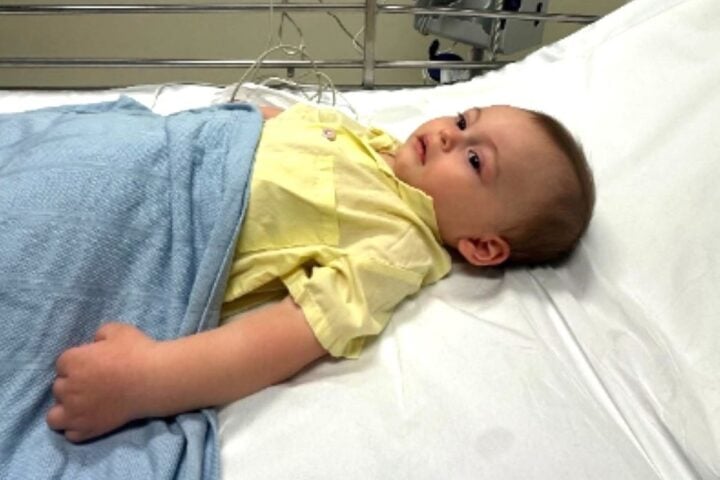Jenny Mollen had to be rushed to the hospital after a scary reaction to a weight loss medication. The 46-year-old actress, who’s married to “American Pie” star Jason Biggs, lost one-fourth of her blood during the emergency.
She shared videos from inside an ambulance on her Instagram. Jenny looked pale and tired as she talked about what happened. “I’m in such a haze,” she said. “It’s been a crazy 48 hours.”
Jenny had been trying something called “microdosing” with a drug called tirzepatide. This is when people take smaller amounts than doctors usually give. The drug is normally used to help people with diabetes or to lose weight. It works by making you feel full so you eat less.
But Jenny’s experience shows how dangerous these drugs can be when not used properly.
How the Drug Changed Her Mind
Before ending up in the hospital, Jenny noticed the medication was messing with her emotions. She started crying all the time for no reason. Even talking about simple things like her kids or food would make tears pour out.
“When I started taking it, the first thing I noticed was that I was crying more,” she wrote. She couldn’t control it at all.
Similar Posts
The drug also made her super anxious. After just one cup of coffee, her body would react like she’d taken hard drugs. She’d pace around the kitchen feeling completely wired.
Jenny became easily upset and angry at little things. But the worst part was losing her ability to feel real happiness. Things that used to make her excited, like riding rollercoasters, didn’t give her the same rush anymore. The joy was there somewhere, but she couldn’t reach it.
“I could feel the joy simmering beneath the surface, but it never reached the peak it once had,” she explained. Even when good things happened at work, she couldn’t feel satisfied.
These mental health side effects from weight loss drugs are becoming more common as more people use them.
What Microdosing Really Means
Microdosing means taking much smaller amounts of these weight loss drugs than what doctors prescribe. People think it’s safer, but that’s not true. These drugs need to be used exactly as doctors say.
Some doctors do give smaller doses, but they watch their patients very carefully. One doctor in South Carolina has 200 patients on what he calls microdoses. But he works closely with each person and adjusts things based on how they respond.
The problem is when people try to figure out doses themselves. They might buy the drugs online or from places that aren’t real pharmacies. These versions might be fake or have the wrong amounts of medicine in them.
Health officials have gotten over 500 reports of bad reactions from people using fake versions of semaglutide and nearly 500 reports for tirzepatide. Some people ended up in the hospital.
Getting Help and Medical Support
During her medical crisis, Jenny’s doctor provided dedicated support throughout her emergency room visit. Dr. Albert Sassoon, her OBGYN, stayed in contact with her and the hospital staff during the frightening experience.
“Thank God for my doctor who spent his entire night on the phone with me,” Jenny wrote. She said she doesn’t know what she would have done without him.
Jenny has always been open about her health struggles. A few years ago, she had thyroid problems after having her second baby that made her lose too much weight too fast. She shared nude photos to show how thin she’d gotten and to warn other moms about similar issues.
What’s Changing with These Drugs
The popularity of weight loss medications has created problems. So many people want them that there haven’t been enough real ones to go around. This has led to a black market where people sell fake versions.
Starting this year, it’s getting harder to get the fake versions. By May 2025, most of the cheaper copies will be banned. People will need to get prescriptions from real doctors and fill them at licensed pharmacies.
Many people have been ordering these drugs from other countries or buying them online as “research chemicals.” These aren’t tested for safety and can be very dangerous.
Recent studies have shown concerning patterns. Researchers found that people taking these drugs had nearly twice the risk of developing mental health problems, including depression and anxiety.
Jenny’s Current Condition
Since her hospital stay in late June, Jenny hasn’t shared many updates about her recovery. She thanked her medical team for their help during the emergency.
She’s used her scary experience to warn others about the dangers of experimenting with these medications without proper medical care. Her story shows how even small doses can cause serious problems.
The actress, known for playing Nina Ash on “Angel” and for writing bestselling books, has two young sons with Jason Biggs. She’s often shared honest stories about motherhood and health challenges.
Her message is clear: these drugs might help some people, but they need to be used safely with a doctor’s help. Taking them on your own or changing doses without medical guidance can lead to dangerous situations like hers.



















